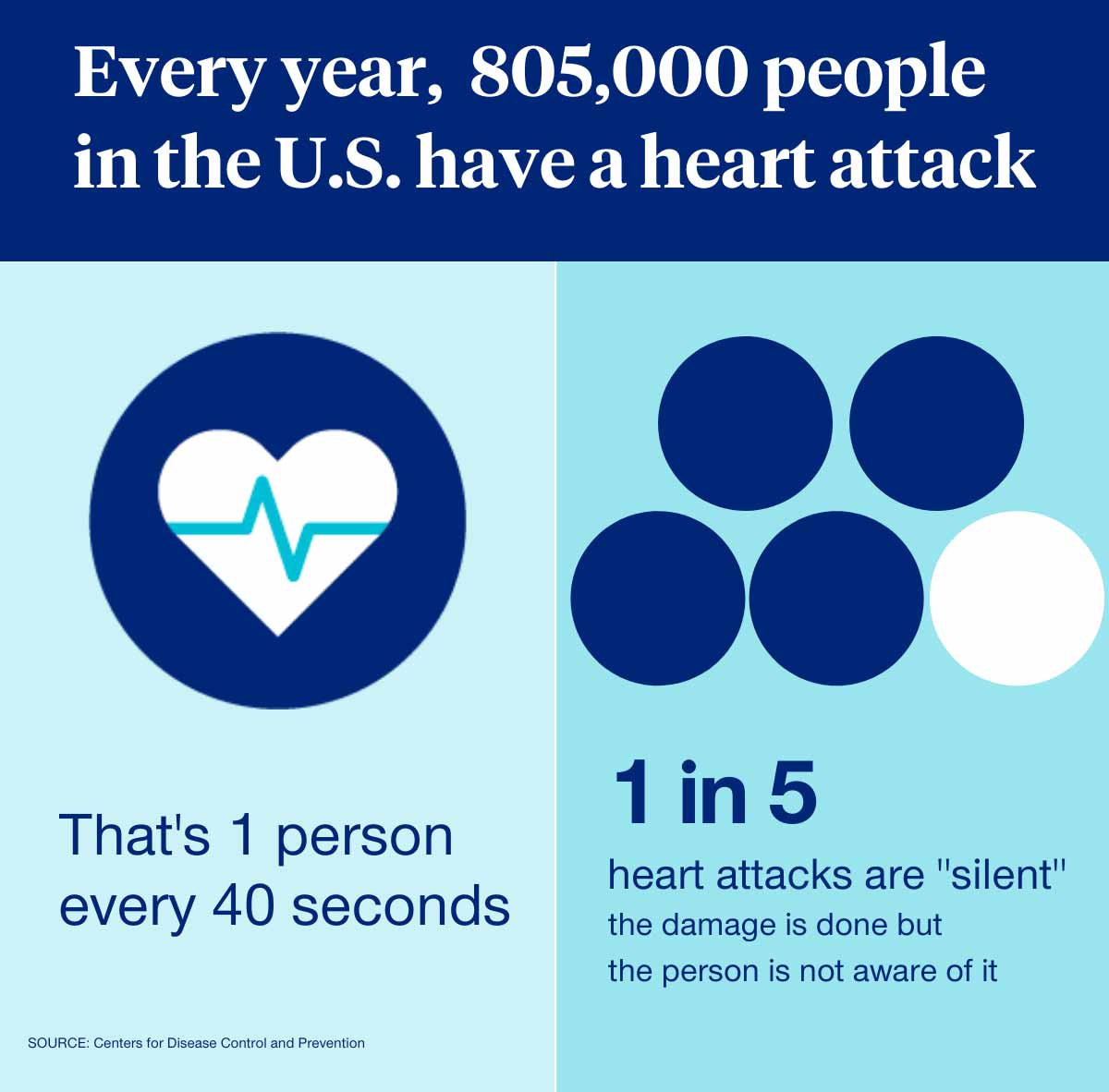Do you know all the signs of a heart attack?
A heart attack happens every 40 seconds in the U.S., affecting around 805,000 people each year. Knowing what to do when one occurs could help save your life or someone else’s.
February is American Heart Month, a good time to focus on your heart health, including learning common symptoms of a heart attack and what to do if one strikes.
See if you know the answers to these five common questions about heart attacks:

What happens during a heart attack?
A heart attack, also known as a myocardial infarction, occurs when an artery becomes blocked, preventing blood from reaching the heart muscle. The blockage can be caused by a buildup of fat, cholesterol and other substances. The more time that passes without treatment to restore blood flow, the greater the damage to the heart muscle.
Is a heart attack the same as cardiac arrest?
No, they are different issues. Unlike a heart attack, which happens when blood flow to the heart gets blocked, sudden cardiac arrest is caused when the heart’s electrical system malfunctions. When it happens, the heart stops beating properly. In other words, its pumping function is “arrested.”
Another way to think about it: A heart attack is a “circulation” problem and sudden cardiac arrest is an “electrical” problem. A heart attack may cause cardiac arrest, but they are not the same.
RELATED: Know the difference between heart attack and cardiac arrest
What are the symptoms of a heart attack?
TV shows and movies portray heart attacks as striking suddenly and powerfully — and sometimes they do. However, many people have warning signs hours, days or weeks in advance. Issues vary from person to person and between men and women, but common symptoms include:
- Chest pain or discomfort
- Feelings of weakness or lightheadedness
- Jaw, neck or back pain
- Arm or shoulder pain
- Shortness of breath
It’s important to note, women may have different heart attack symptoms, sometimes without chest pain. Signs of a heart attack in women may also include nausea or vomiting and unusual or unexplained fatigue, possibly for days.
What should you do if you suspect a heart attack?
If you think you or someone nearby may be having a heart attack, don’t hesitate — call 911 immediately. Every minute matters when the heart is concerned.
If someone around you loses consciousness and you believe it’s due to a heart attack, call 911. Then, check to see if the person is breathing and has a pulse. If they aren’t breathing or you don't find a pulse, only then should you begin CPR.
How can you reduce the risk of having a heart attack?
Although there are several risk factors you can’t control, such as age or family history, there are many things you can do to avoid coronary artery disease, the main cause of heart attack:
- Avoid tobacco products
- Exercise regularly
- Eat a healthy diet
- Maintain a healthy weight
- Reduce stress
In addition to these lifestyle choices, make a point to see your primary care physician regularly. Annual checkups, which may include blood pressure, cholesterol and blood sugar tests, can help uncover early signs of heart disease or damage from a silent heart attack.
Research indicates 1 in 5 heart attacks are considered “silent,” meaning the harm has already been done, but because there were no symptoms, you may not be aware of it. A doctor may use diagnostic tests to determine if a silent heart attack has occurred.